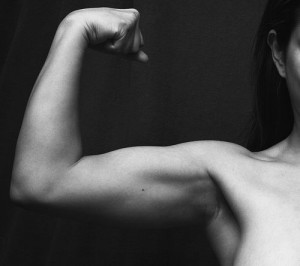by Roberta Nin Feliz
 Meanwhile, women are expected to learn how to cook, clean and be good housewives. Although there has been encouragement for women to have careers and not just be housewives, the need for them to be able to perform excellent housekeeping chores has not changed.
Meanwhile, women are expected to learn how to cook, clean and be good housewives. Although there has been encouragement for women to have careers and not just be housewives, the need for them to be able to perform excellent housekeeping chores has not changed.
It puzzles me as to why we raise our men with hyper-masculinity programmed into their heads as if it were essential for evolutionary purposes.
In the Dominican culture, there’s a hyper-masculinity that hovers over women and men alike. Dominican men are raised to be “tough guys” and provide for their family in the future.
As for me, it’s been an upward struggle trying to deal with hyper-masculine uncles, cousins and even my father. I never realized the hyper-masculinity within them until I was about 14, and became interested in feminism. It’s one of those things in my culture that you seldom notice because that’s how it’s always been.
Nevertheless, it’s been centuries since the beginning of the first feminist movement and you would think that by now, the hyper-masculinity would have decreased. But the true progress of women and men within the Dominican culture depends on the deconstruction of stereotypical “machismo”.
The hyper-masculinity of most Dominican men is revealed in situations where their masculinity seems most vulnerable, or when it’s challenged. For example, in my family if a man is asked to wash the dishes, they may protest or not do it at all. It is also frowned upon for men to show feelings. And they’re expected to be tough all of the time. To Dominican men, having a woman as a partner is like owning property. The woman is “his woman”, “his lady”, or “his wife”. Not that there is anything wrong with a man claiming or showing off his partner, but a Dominican man takes this to the extreme of total objectification. Often times, they’ll answer questions for their partners or make decisions for them without asking their opinion. Because they were raised to be “the man of the house, they assume that all women will be submissive and allow them to be men of the house. That is not always the case.
I’ve always wondered if Dominican men would want their daughters to be with a hyper-masculine Dominican man as well. It may not be appealing to a man that his little girl will be told what to do by another man in the future. It seems as though the father figure looms too large in the imagination of a Dominican man. In other words, because a Dominican man has grown up with a Dominican father or a man acting as a father, they may imitate this behavior when they’re in relationships. To me, it doesn’t seem like making a decision for your partner or telling them what to do, is something that a normal partner would do, but rather something a father would do. This is all because of their hyper-masculinity and their need to always feel like the top dog or hero, with the woman acting as his sidekick. Even Junot Diaz, (a Dominican Pulitzer Prize- winning author) remarked at one of his readings that he was never encouraged to view women as complete human beings.
There is nothing about a hyper-masculine man that appeals to me, whether it’s a partner or a friend. It can get extremely irritating being surrounded by men that always feel the need to express their “manliness.” If they’re trying to impress the ladies, then it’s working backwards because hyper-masculinity can scare away a woman. Perhaps, they do it because that’s just all they know how to do. We, as a culture, need to stop encouraging hyper-masculinity in men because it makes it harder for our daughters, mothers, sisters and aunts to be liberated from the oppressive shackles on women since the beginning of time. Not only that, but it makes our men closed-minded because they always find the need to play this tough guy persona. We need to promote equality in our culture. Dominican women are just as strong or tough as men, and we deserve to be recognized as strong, competent individuals. Hyper-masculinity is doing nothing but plaguing our culture and we should work towards eliminating it.